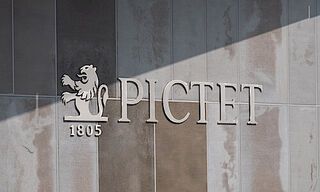Singapore private banks are expanding in the Middle East as competition for a slice of the region’s growing wealth intensifies.
Singapore private banks are upbeat on their prospects in the Middle East and are intensifying their efforts to woo clients there, buoyed by the region’s growing number of ultra high net worth (UNHW) and high net worth individuals as well as the large number of non-resident Indians, The Business Times reported.
The newspaper reported aggressive expansion in the Middle East by DBS Bank, Bank of Singapore, and Citi, which hope to capture some of the wealth from the region that is looking towards Asia for investment opportunities.
Bank of Singapore, the private-banking arm of Oversea-Chinese Banking Corporation (OCBC), opened its Dubai branch in February 2017 and already has 45 wealth managers there. Vikram Malhotra, BOS global market head for South Asia and the Middle East said that to September 30, there has been a 20 percent year-on-year increase in the bank’s revenue from the region.
DBS previously announced plans to make its Dubai office a strategic hub for the Middle East and to increase the number of its private bankers in the Middle East to 40 over the next five years, up from 20 currently. The bank reported that revenue from its Dubai branch grew 20 percent in the past seven years.
Growing Wealth
Similarly, Citi hopes to grow its wealth management business by getting more clients from both the global Indian diaspora and the domestic market. As part of this strategy, it announced the appointment of Varun Chugh as the global market manager for its global India business, and Puneet Sanwalka as the head of its India onshore business.
According to consultancy Capgemini, Dubai is the second-largest offshore destination for Indian wealth behind Singapore, with 14 percent of their overseas assets going to the Persian Gulf’s financial hub, and 22 percent to the city-state. London is third at 13 percent.
At the same time, the number of UHNW clients with more than $500 million in assets in the Middle East is projected to increase by 28 percent to approximately 500 in 2022, according to data from the Knight Frank 2018 Wealth Report.


























